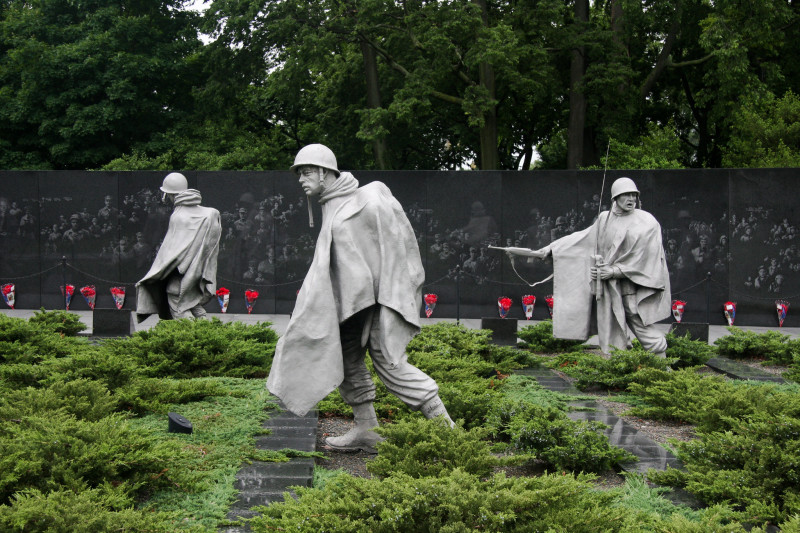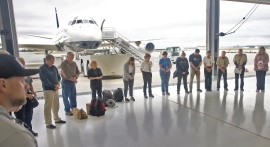
70 years ago on September 15, U.S. Marines successfully arrived in Incheon, and on September 26, Inchon was regained with the help of the guide of Gen. Douglas MacArthur.
Charles Fowler, who served as a combat engineer during the Korean War described the situation of the Korean War in a statement, "The North Koreans and the Russians wanted the whole nation to be united, but they wanted it under Communist control," Fowler said. "That was the biggest issue that was involved."
"My government sent me there, and if a war broke out now, I would obey my government," Fowler shared of his experience being drafted to the Korean War in his late teens. Fowler enlisted in the Air Force in 1949. "I'm 88 years old, but if push came to shove, I'd bear arms now and go into service," Fowler shared.
Samuel Lee, a Korean American who served as a U.S. military chaplain shared a more material perspective of the Korean War. "The Korean War, when you look at it from a purely military perspective, it was an inevitable clash between the West and the expansion of Communism." "When people look at the expansion of Communism at the time, they often don't consider the spiritual aspects and how Christianity was persecuted under Communism."
There were 185 U.S. military chaplains in Korea during the war and Doug Carver, a retired U.S. Army Chaplain described the role of chaplains in the war.
"In combat, a chaplain's primary role is to provide the ministry of 'presence,' which means simply being with their troops in the midst of the chaos and confusion of war. God uses chaplains to strengthen and sustain the faith and morale of their troops, to provide comfort and peace to the wounded and dying and to conduct memorial ceremonies to honor the fallen in battle."
The significance of chaplains is most prevalent in the front lines of the war. "In the Korean War, chaplains were frequently seen on the front lines carrying the wounded back to battle aid stations, assisting in the triage of casualties and kneeling in prayer over the dying," Carver said. "They also helped evacuate wounded troops to Navy ships offshore that became floating hospitals."
Lives of nearly 37,000 American soldiers, including 13 chaplains, sacrificed their lives in the Korean War.

















